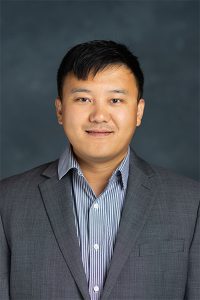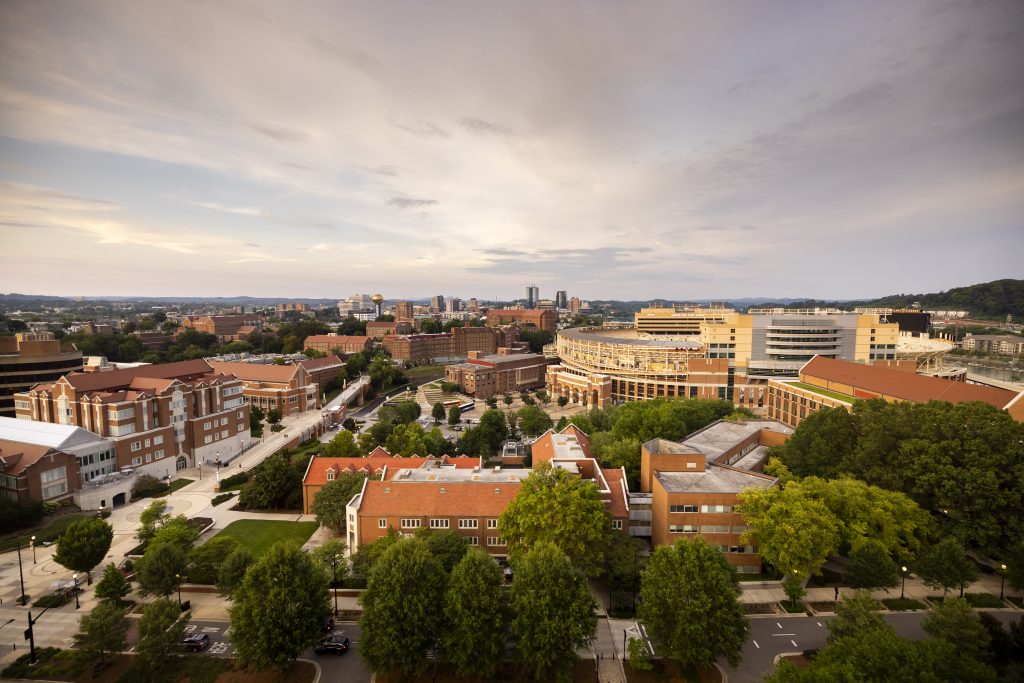Artificial intelligence (AI) has spread into nearly every sector of society. Making sure the systems are being developed and deployed in a manner that is ethical, transparent, and secure, is essential to mitigating risk and gaining the trust of users.
The Min H. Kao Department of Electrical Engineering and Computer Science (EECS) has provided a valuable resource to help enlighten University of Tennessee faculty, staff, and students about the topic.
The Tennessee RobUst, Secure, and Trustworthy AI (TRUST-AI) Seminar is a series of discussions that revolve around ensuring AI technologies advance in capabilities with an unwavering commitment to security, reliability, and ethical governance.
In the second year of existence, TRUST-AI invites professors and experts from across the country to UT’s campus to speak about different AI topics while providing a platform for networking, collaboration, and inspiration. TRUST-AI is part of the AI TENNessee Distinguished Seminar series sponsored by the AI Tennessee Initiative.
 “The goal is to educate people on trustworthy AI, and to make it more than a college level event that everyone can participate in and benefit from,” said EECS Assistant Professor Fnu Suya, who is the chair of TRUST-AI. “I want to have broader campus participation so everyone can learn from this, and for EECS to help support their needs in computing and trustworthy AI.”
“The goal is to educate people on trustworthy AI, and to make it more than a college level event that everyone can participate in and benefit from,” said EECS Assistant Professor Fnu Suya, who is the chair of TRUST-AI. “I want to have broader campus participation so everyone can learn from this, and for EECS to help support their needs in computing and trustworthy AI.”
TRUST-AI is featuring three speakers during the 2025 fall semester and three speakers in the 2026 spring semester. The discussions take place on Fridays between 12:30–1:30 p.m. ET and are open to everyone on campus. The speakers also take part in individual meetings with UT faculty members that are arranged via request.
“These speakers are leaders defining our field through their research impact,” Suya said. “Our goal in hosting them is to showcase our own commitment to that same standard of research excellence. This focus is strategic: it elevates our reputation of research quality and visibility in the research community, which is essential for attracting top-tier faculty and students. That talent, combined with our growing impact, is what ultimately positions us to secure major, large-scale funding.”
Engaging Expert Experiences
The speakers for the fall semester have included Jenny Davis, the Gertrude Conaway Vanderbilt Endowed Chair in Sociology, and Somesh Jha, the Lubar Professor of Computer Sciences at the University of Wisconsin. Jha, who said the “energy from the audience at UT was amazing,” is a leader in adversarial machine learning. His 2015 paper on model inversion attacks—work that launched an entire research area—just received the prestigious Test of Time Award at CCS 2025.
Omar Santos, a distinguished engineer from Cisco leading AI security research, vulnerability research, and disclosure, is the final fall speaker scheduled to participate. As co-chair of the Coalition for Secure AI (CoSAI) and board member of the OASIS Open standards organization, Santos helps shape the future of secure technology adoption across industries.
Davis, whose first book ’How Artifacts Afford: The Power and Politics of Everyday Things‘ presents an operational framework for the analysis and design of technologies in society, believes holding conversations like the ones facilitated by TRUST-AI are necessary in the modern world.
“AI is integrating into personal and public life, raising technical and social questions that require multiple lenses and perspectives,” she said. “This series brings together a diverse collection of experts, advancing knowledge while seeding collaborations that will be necessary to understand and intervene on a quickly changing world.”
Expanding the Fields
Suya hopes to involve more AI and security privacy experts who specialize in the medical domain and deal with medical records, and possibly partnering with the UT Medical Center to expand the reach of TRUST-AI.
“The biggest ambition is that by doing all these connections, there can be more internal and external collaborations, so that gradually UT can become even more interdisciplinary and visible in the general research community,” Suya said. “It gives us a chance to tell the speakers what UT is doing and get their feedback, which I think is going to be beneficial overall.”
After her speaking appearance at UT, Davis was struck by the depth of conversation and discourse.
“Speaking at UT was a fun and intellectually engaging experience. I was welcomed by scholars and students within and well outside of my discipline,” Davis said. “I learned a great deal from them over the course of the visit. The talk was well attended and the audience asked excellent questions.”
Contact
Rhiannon Potkey (rpotkey@utk.edu)
